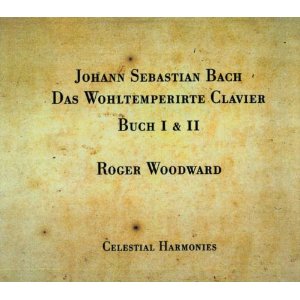London Jazz Festival Round-Up
A selection of highlights from a vibrant and eclectic 10 days
The 10-day London Jazz Festival, now in its 19th year, is a diverse and international festival that embraces the unapologetically commercial Jazz Voice, the outer reaches of (free) free improv and even Abram Wilson’s Jazz for Toddlers. Despite a line-up that’s both starry and distinguished there was no single name that might encapsulate the festival’s rainbow palette. You can get a taste of its breadth from the three giants competing for our attention on the final night: Brazilian pioneer Hermeto Pascoal, guitarist Bill Frisell and free-jazz pioneer Ornette Coleman.

 Bach: The Well-Tempered Clavier, Books 1 and 2 Roger Woodward - piano (Celestial Harmonies)
Bach: The Well-Tempered Clavier, Books 1 and 2 Roger Woodward - piano (Celestial Harmonies)